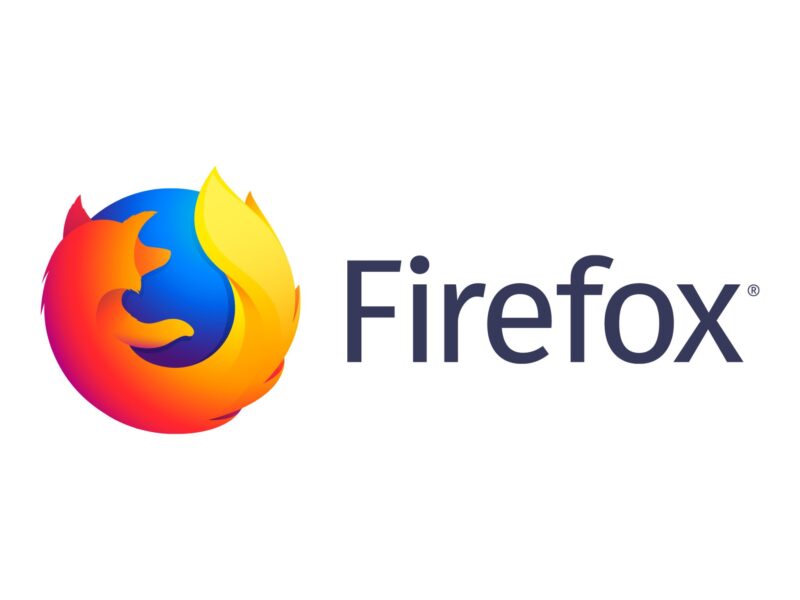In the dynamic realm of web browsing, Firefox has long been hailed as a stalwart—a browser revered for its adaptability, commitment to user privacy, and vibrant open-source community. However, amidst the ever-evolving landscape of technology and user demands, the quest for Firefox alternatives gains momentum.
This comprehensive guide navigates beyond the familiar terrain of Firefox, exploring a myriad of browsers that serve as compelling Firefox alternatives. We delve into the intricacies of these alternatives, dissecting their unique features, limitations, and compelling reasons propelling users to venture beyond Firefox’s confines.
From speed-driven powerhouses to privacy-centric champions and those emphasizing unparalleled customization, this exploration aims to empower users with a comprehensive understanding of the diverse browser options available, facilitating informed decisions in their quest for the ideal browsing experience.
Overview Of Firefox

Features Of Firefox
- Customizability: Firefox’s strength lies in its ability to be molded according to individual preferences. The vast repository of extensions and themes allows users to tailor their browsing experience extensively. From ad blockers to password managers, Firefox provides a playground for customization.
- Privacy And Security: The emphasis on user privacy sets Firefox apart. With robust features like Enhanced Tracking Protection, it shields users from trackers, cookies, and unwanted scripts, amplifying online privacy.
- Open-Source Nature: Being open-source fosters innovation. The community-driven approach not only encourages development but also creates a sense of ownership among users, fostering loyalty and trust in the browser.
Limitations Of Firefox
- Resource Intensiveness: Some users experience higher memory consumption with Firefox, impacting device performance, particularly on systems with limited resources.
- Update Delays: The pace of updates in Firefox occasionally lags behind, potentially delaying the integration of critical security patches and new features.
- Compatibility Challenges: Certain websites and applications might not function optimally on Firefox, leading to compatibility issues for users.
What Makes Firefox Stand Out?
Firefox stands out not just as a browser but as a community-driven ecosystem that fosters innovation and privacy. Its allegiance to an open-source philosophy invites collaboration, enabling users to shape its evolution actively. Beyond this, Firefox champions user privacy with robust features like Enhanced Tracking Protection, providing a shield against intrusive trackers.
In addition, its commitment to customization empowers users to sculpt their browsing experience, ensuring a sense of ownership and tailored functionality. Moreover, its versatility in catering to a wide array of users, from tech enthusiasts to casual surfers, amplifies its standing as a browser that champions both innovation and user empowerment.
Why Explore Firefox Alternatives

The quest for Firefox alternatives is driven by a multitude of factors:
1. Performance Enhancement: Seeking Improved Speed And Efficiency
The pursuit of Firefox alternatives stems from a desire for browsers that offer enhanced performance. Users crave speedier browsing experiences, especially on devices with limited resources. Exploring Firefox alternatives becomes essential to find browsers that consume fewer system resources while delivering seamless performance.
2. Specialized Features: Catering To Unique Needs And Preferences
Users often seek specialized features not readily available in Firefox. Whether it’s advanced tab management, built-in VPNs, or distinctive browsing modes, the search for Firefox alternatives is fueled by the quest for browsers that offer tailored functionalities aligned with specific needs.
3. Compatibility And Adaptability: Ensuring Seamless User Experience
Incompatibility issues with certain websites or applications lead users to explore Firefox alternatives. The need for browsers that adapt and render websites optimally becomes paramount, prompting users to seek Firefox alternatives that offer better compatibility and adaptability.
4. Diverse User Requirements: Addressing Varied Preferences And Priorities
Firefox alternatives cater to a diverse spectrum of user requirements. Some users prioritize privacy, while others seek seamless integration with their operating systems. The multitude of preferences and priorities prompts users to explore different browsers that align more closely with their individual needs.
5. Evolving Technological Landscape: Adapting To Changing Technological Trends
As technology advances, so do user expectations. The landscape of browsers constantly evolves, introducing new features and functionalities. Exploring Firefox alternatives becomes a means to stay abreast of the latest technological trends and innovations in the browsing sphere.
Commonly Used Firefox Alternatives For Diverse Needs

1. Google Chrome
Google Chrome stands as a titan among browsers, celebrated for its unparalleled speed, seamless integration, and widespread accessibility.
Speed And Efficiency
Chrome’s dominance in the browsing arena stems from its remarkable speed, allowing users to navigate the web swiftly and seamlessly. Its efficient rendering engine and streamlined design contribute to quick page load times, providing a snappy browsing experience that caters to users who value speed above all else.
Integration With Google Ecosystem
One of Chrome’s compelling aspects lies in its integration with Google’s expansive suite of services. This synchronization across platforms—from Gmail and Google Drive to YouTube and Google Search—creates a unified experience, enhancing productivity and convenience for users entrenched in the Google ecosystem.
2. Microsoft Edge
Microsoft Edge emerges as a compelling Firefox alternative, leveraging the Chromium engine to deliver efficiency and seamless integration, particularly for users entrenched within the Windows ecosystem.
Cross-Platform Compatibility
One of Edge’s standout features lies in its seamless compatibility across various platforms. While originally Windows-centric, Edge extends its functionality to macOS, iOS, and Android, ensuring a consistent browsing experience across devices. This cross-platform availability appeals to users seeking synchronized browsing habits across their diverse devices.
Enhanced Performance And Compatibility
Riding on the Chromium engine, Edge inherits the robustness of Chrome’s underlying technology while offering enhanced performance and improved compatibility. This integration ensures a smoother transition for users familiar with Chrome, enabling the use of a wide array of Chrome extensions and delivering a familiar browsing interface.
3. Safari
Safari, Apple’s proprietary browser, stands as a testament to seamless integration with the Apple ecosystem while offering elegance and stringent privacy measures.
Optimized Performance On Apple Hardware
Safari’s design and functionalities are meticulously tailored to harmonize with Apple devices, leveraging their hardware capabilities to deliver optimized performance. This Firefox alternative’s energy-efficient browsing ensures a longer battery life on iPhones, iPads, and Macs, resonating deeply with Apple users seeking a streamlined experience.
Robust Privacy Features
Privacy takes center stage in Safari’s ethos. With features like Intelligent Tracking Prevention and built-in privacy reports, Safari shields users from unwanted tracking and ensures data privacy. By blocking cookies and enforcing stringent privacy measures, it embodies Apple’s commitment to safeguarding user information, appealing to users who value privacy in an increasingly data-driven landscape.
4. Opera
Opera stands as a versatile option in the browser landscape, presenting users with a feature-rich browsing experience that caters to diverse needs.
Integrated Tools For Enhanced Browsing
Opera sets itself apart by offering a suite of integrated tools designed to elevate the browsing experience. From a built-in ad blocker that efficiently rids webpages of intrusive ads to a free VPN service ensuring secure browsing, Opera integrates these features seamlessly, prioritizing user convenience and privacy.
Sidebar Extensions For Quick Access
A notable highlight lies in Opera’s sidebar extensions, providing users with swift access to essential functionalities. Users can effortlessly access messenger apps, social media platforms, or productivity tools directly from the sidebar, streamlining multitasking and enhancing browsing efficiency using this Firefox alternative.
5. Brave
Brave, an avant-garde browser, stands as a vanguard in the pursuit of online privacy. Its primary forte lies in shielding users from the pervasive invasion of ads and trackers by default. This bold stance aligns with users’ increasing concerns about data privacy, providing a faster, more secure browsing experience.
Innovative Rewards System
Brave introduces an innovative rewards system that offers users the choice to engage with ads while preserving their privacy. By opting into the system, users can earn Basic Attention Tokens (BAT), effectively rewarding their attention to ads. This pioneering approach not only maintains user privacy but also incentivizes engagement with select advertisements.
Enhanced Security Measures
Beyond ad-blocking, Brave’s emphasis on security extends to additional layers of protection, including fingerprinting prevention and HTTPS upgrades. These measures fortify users against potential security breaches, fostering a browsing environment prioritizing user safety.
6. Vivaldi
Vivaldi emerges as a powerhouse browser tailored explicitly for power users seeking an unparalleled level of customization and functionality. Its cornerstone lies in empowering users with an arsenal of tools and features to personalize their browsing experience to the minutest detail.
Advanced Tab Management Capabilities
Vivaldi distinguishes itself with its robust tab management functionalities. Users can effortlessly organize, stack, tile, and even hibernate tabs to declutter their browsing interface, ensuring optimal efficiency and navigation.
Customizable User Interface And Tools
Beyond tab management, Vivaldi offers a treasure trove of customization options. From customizable keyboard shortcuts and note-taking functionalities to adaptable themes and a highly customizable UI, users have the liberty to fine-tune their browsing environment according to their specific workflow and preferences.
7. Tor Browser
The Tor Browser stands as a beacon for users valuing anonymity and heightened privacy in their browsing experiences.
Anonymous Browsing Through Network Routing
Tor routes internet traffic through a global network of servers, encrypting data multiple times, concealing a user’s IP address, and making it challenging to trace their online activities. This multi-layered encryption ensures a high level of anonymity, shielding users from surveillance and tracking.
Accessible Anonymity For Enhanced Privacy
Beyond the intricate encryption, Tor’s user-friendly interface ensures accessibility, allowing individuals to access the Tor network with relative ease. This Firefox alternative emphasizes user privacy without requiring extensive technical know-how, making it accessible to a broader user base seeking heightened privacy measures.
8. Chromium
Chromium, the foundational framework beneath Google Chrome’s interface, stands as a pared-down browser offering efficiency and privacy as its core pillars. Its minimalist approach is designed for users seeking a streamlined browsing experience without the bells and whistles of additional services.
Minimalist Interface And Maximized Efficiency
With a simplistic user interface and a focus on speed, Chromium provides a no-frills browsing experience. It’s ideal for users seeking a lightweight Firefox alternative that prioritizes performance.
Privacy-Centric Design
By removing Google’s services and emphasizing privacy, Chromium aims to provide a more privacy-focused browsing experience. It caters to users concerned about data collection and tracking, offering a more discreet online presence.
9. Waterfox
Developed with a focus on revamping the legacy of Firefox, Waterfox emerges as a specialized Firefox alternative optimized for 64-bit systems. It mirrors the fundamental features of Firefox while addressing concerns related to resource consumption and performance.
Familiarity And Streamlined Experience
Waterfox extends a sense of familiarity to Firefox users by retaining the core functionalities and compatibility with Firefox extensions. This familiarity streamlines the transition process for users seeking a change without compromising on the extensions they rely on.
Enhanced Speed And Privacy
Waterfox emphasizes speed and privacy, catering to users seeking a balance between efficient performance and heightened security. This Firefox alternative fine-tunes the browsing experience, optimizing resource usage to deliver a smoother and faster performance while maintaining a robust privacy focus akin to its Firefox origins.
10. Pale Moon
Derived from the legacy of Firefox, Pale Moon stands as a browser forged from the older Firefox code, emphasizing efficiency and extensive customization. This Firefox alternative’s commitment to simplicity resonates with users seeking a streamlined and efficient browsing experience reminiscent of earlier Firefox versions.
Resource Optimization
Pale Moon prioritizes efficient resource usage, aiming to provide a lighter and faster browsing experience. Through optimized resource allocation, it aims to deliver enhanced performance on devices with limited capabilities without compromising on functionality.
Legacy Interface And Customization
Maintaining a familiar interface reminiscent of earlier Firefox iterations, Pale Moon offers extensive customization options. Users can tailor their browsing experience by tweaking various settings, incorporating themes, and utilizing a range of add-ons, ensuring a personalized browsing environment aligned with their preferences.
Factors To Consider While Choosing The Perfect “Firefox Alternative”

1. Performance And Resource Usage
Assessing the performance of a browser extends beyond just speed. It involves evaluating its overall efficiency in terms of memory usage, CPU utilization, and how it handles multiple tabs and processes. Opting for a browser that strikes a balance between speed and resource consumption ensures a smoother browsing experience, especially on devices with limited RAM or processing power.
2. Privacy And Security Measures
Delving into the browser’s privacy features goes beyond the surface level. Users should examine the depth of privacy protection offered, such as the presence of built-in trackers, cookie controls, and options for enhanced privacy settings. Moreover, evaluating the browser’s track record in promptly addressing security vulnerabilities and the transparency of its data handling policies is crucial in safeguarding sensitive information.
3. Extension And Website Compatibility
Compatibility with essential extensions and proper rendering of websites are pivotal factors in choosing a browser. Ensuring that the browser supports the necessary extensions for work, productivity, or security and renders websites accurately without glitches or layout distortions is imperative. Compatibility issues might hamper user experience and productivity, making it essential to find a Firefox alternative that seamlessly integrates with the user’s browsing habits.
4. User Interface And Customization
The user interface plays a pivotal role in user satisfaction. It’s not merely about aesthetics but also about intuitiveness and ease of use. Customizability is equally crucial, as users prefer browsers that allow them to personalize their browsing experience according to their preferences. Evaluating the level of customization options, including themes, layout adjustments, and the ability to tweak settings, ensures a browser aligns with individual tastes and needs.
5. Development And Support
The longevity and responsiveness of a browser’s development and support are paramount for a sustainable browsing experience. Users should consider factors such as the frequency of updates, the community’s involvement in development, and the responsiveness of customer support. A browser with regular updates addressing security concerns and bug fixes and incorporating new features indicates a commitment to continuous improvement and user satisfaction. Additionally, a strong community backing ensures a more robust and user-oriented development cycle.
Conclusion
In a realm where choices abound, the spectrum of Firefox alternatives offers a landscape rich with possibilities. Each alternative represents a tailored solution catering to specific browsing needs—be it speed, privacy, or customization. This exploration serves as a compass, guiding users through a myriad of options and empowering them to align their browsing experiences with individual preferences.
From the streamlined efficiency of Chromium to the privacy-centric ethos of Tor and the versatility of Vivaldi, these Firefox alternatives embody a mosaic of functionalities. By embracing this diversity, users can navigate towards browsers that resonate with their unique habits and priorities, ultimately embarking on a browsing journey tailored to their liking and requirements.









